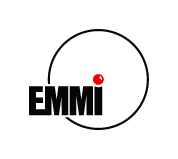Sprecher
Beschreibung
The ISOL technique of producing radioactive beams at TRIUMF [1] is well recognized for producing exotic species in both their ground- and isomeric states. The beta and beta-delayed-neutron decay of ground spin and isomeric states has been investigated with the GRIFFIN spectrometer [2], consisting of up to 16 Compton-suppressed hyper purity Germanium detectors for gamma-ray detection and augmented with a suite of ancillary detectors for beta-particle- and conversion electrons-tagging, and fast life-time measurements of nuclear states. Particular configurations of the GRIFFIN experimental setup lead to a superior gamma-ray efficiency and low peak-to-total background, and allow for determination of angular momenta and parity of states. In this talk we will present several comprehensive decay spectroscopy experiments in nuclei close to the magic proton numbers 28 and 50 and magic neutron number 82, populated by the decay of ground state and isomeric beams of 129,131,132In [3-5] and 80Ga [6,7]. Due to the high-efficiency of the experimental set-up we were able to improve beta-delayed neutron values for 131,132Sn and observe a new beta-decay branch in 129Sn, and we shone a light in the shape coexistence debate near the doubly magic 78Ni. Finally, by expanding the knowledge and information available near two regions of magicity, we provided crucial inputs to improve the nuclear shell model, especially in the case of 131Sn and 80Ge.
This work was supported, in part, by the Natural Sciences and Engineering Research Council of Canada (NSERC). The GRIFFIN spectrometer was funded by the Canadian Foundation of Innovation (CFI), TRIUMF, the University of Guelph and Simon Fraser University. TRIUMF receives funding from the Canadian Federal Government via a contribution agreement with the National Research Council Canada (NRC).
[1] J. Dilling et al., Hyperfine Int. 225, 1 (2014).
[2] A.B. Garnsworthy et al., NIM A 918, 9 (2019).
[3] F.H. Garcia et al., Phys. Rev. C 103, 024310 (2021).
[4] R. Dunlap et al., Phys. Rev. C 99, 045805 (2019).
[5] K. Whitmore et al., Phys. Rev. C 102, 024327 (2020).

